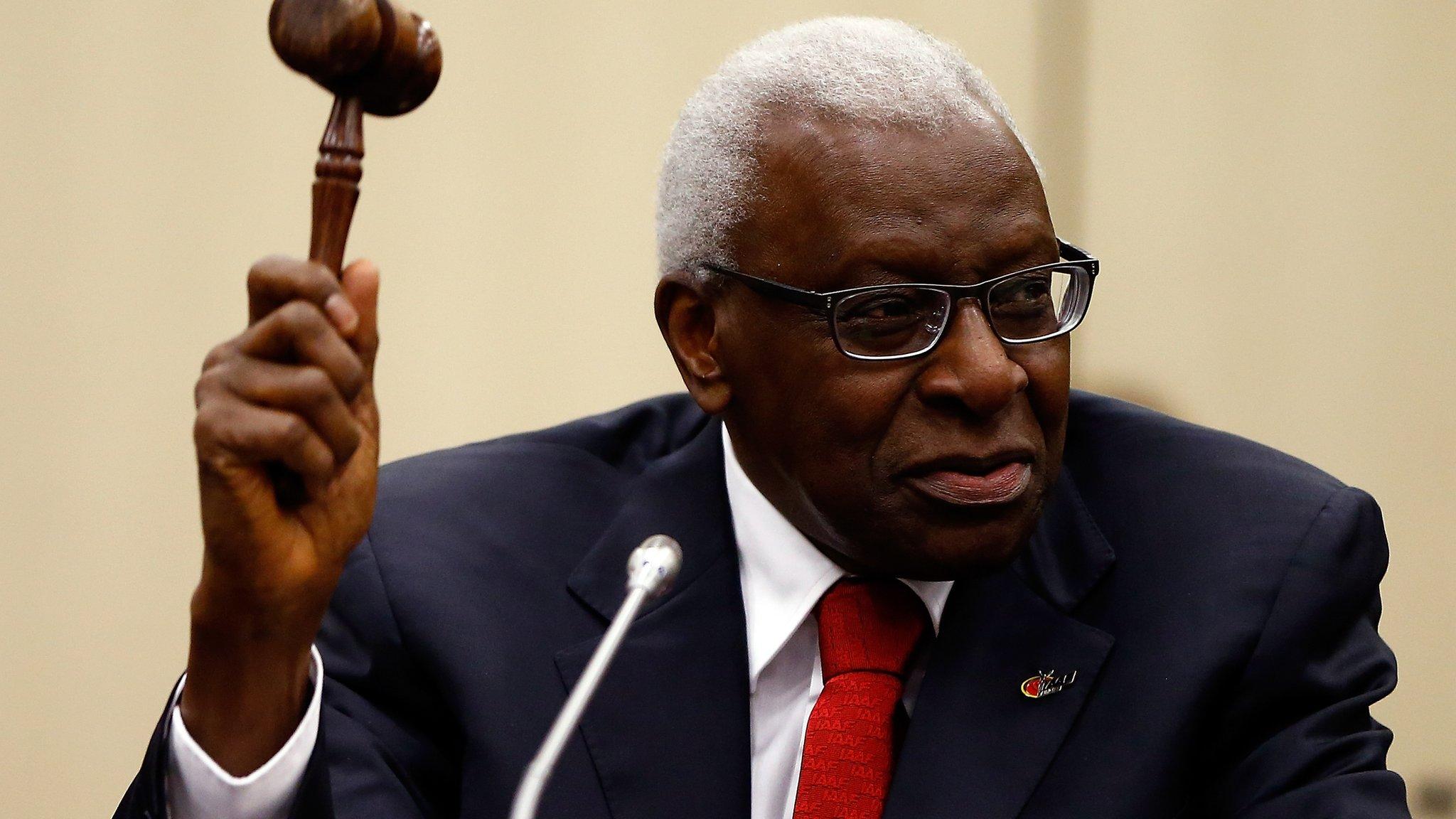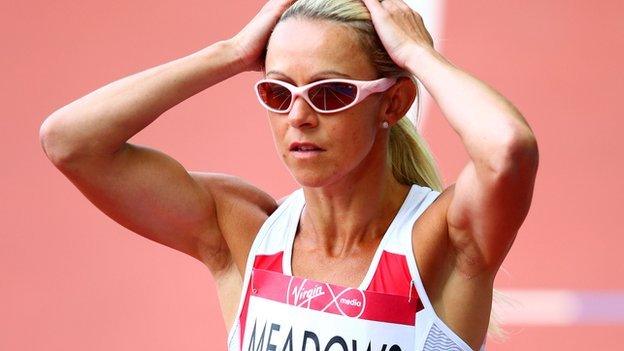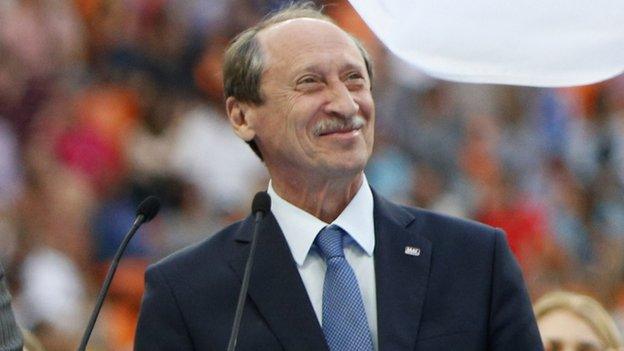Christine Ohuruogu criticises IAAF chief over doping 'crisis' remarks
- Published
Athletics faces crisis - IAAF boss Lamine Diack, speaking to BBC Sport's Dan Roan in February 2015
Olympic champion Christine Ohuruogu has criticised the head of world athletics for saying the sport faces a "crisis" over doping allegations.
International Association of Athletics Federations president Lamine Diack told the BBC that he was "shocked" by claims that IAAF officials were implicated in covering up doping in Russia.
"It's very hard to promote our sport when he doesn't know what the hell is going on," Ohuruogu said.
"Who else's job is it?"
Speaking on BBC Radio 5 live, Ohuruogu said: "I think that kind of sentiment is uncalled for. Even if he felt that way personally he should have kept that private."
In December, a German TV documentary claimed Russian officials systematically accepted payment from athletes to supply banned substances and cover up tests.
Those claims are now being examined by the IAAF's ethics commission, which will decide whether Russian anti-doping officials, its own treasurer and even the son of its president are guilty of wrongdoing.
The BBC has not independently verified the documentary's allegations and is awaiting responses from the athletes, who were approached when it was first broadcast, that were targeted in the programme. The Russian authorities have dismissed the allegations as a "pack of lies".
Athletics faces crisis - IAAF boss Lamine Diack, speaking to BBC Sport's Dan Roan in February 2015
But Diack - who will stand down as IAAF president in August after 16 years as the most powerful figure in track and field - denied knowledge of any cover-up.
In his first broadcast interview since the allegations were made public, Diack told the BBC sports editor Dan Roan: "It's a difficult crisis but we will put it behind us by cleaning all this."
Ohuruogu was banned from racing for a year for missing three drugs tests before returning, external to win world gold.
She also won Olympic gold, external in the 400m in the 2008 Beijing Games and became the first British female to win two World Championship titles when she took gold in Moscow in 2013 to add to her 2007 title., external
Ohuruogu said: "It's really unfair to say our sport is in crisis when it's your primary job to make sure the right safeguards are in place to make sure these events don't occur.
"It's a case for the IAAF to get involved and make sure these other federations are doing their jobs properly. Who is going to tell them? They're not going to police themselves.
"Why are we doing all this work if you can't support us?"
- Published16 February 2015

- Published16 February 2015

- Published17 February 2015

- Published10 September 2015
